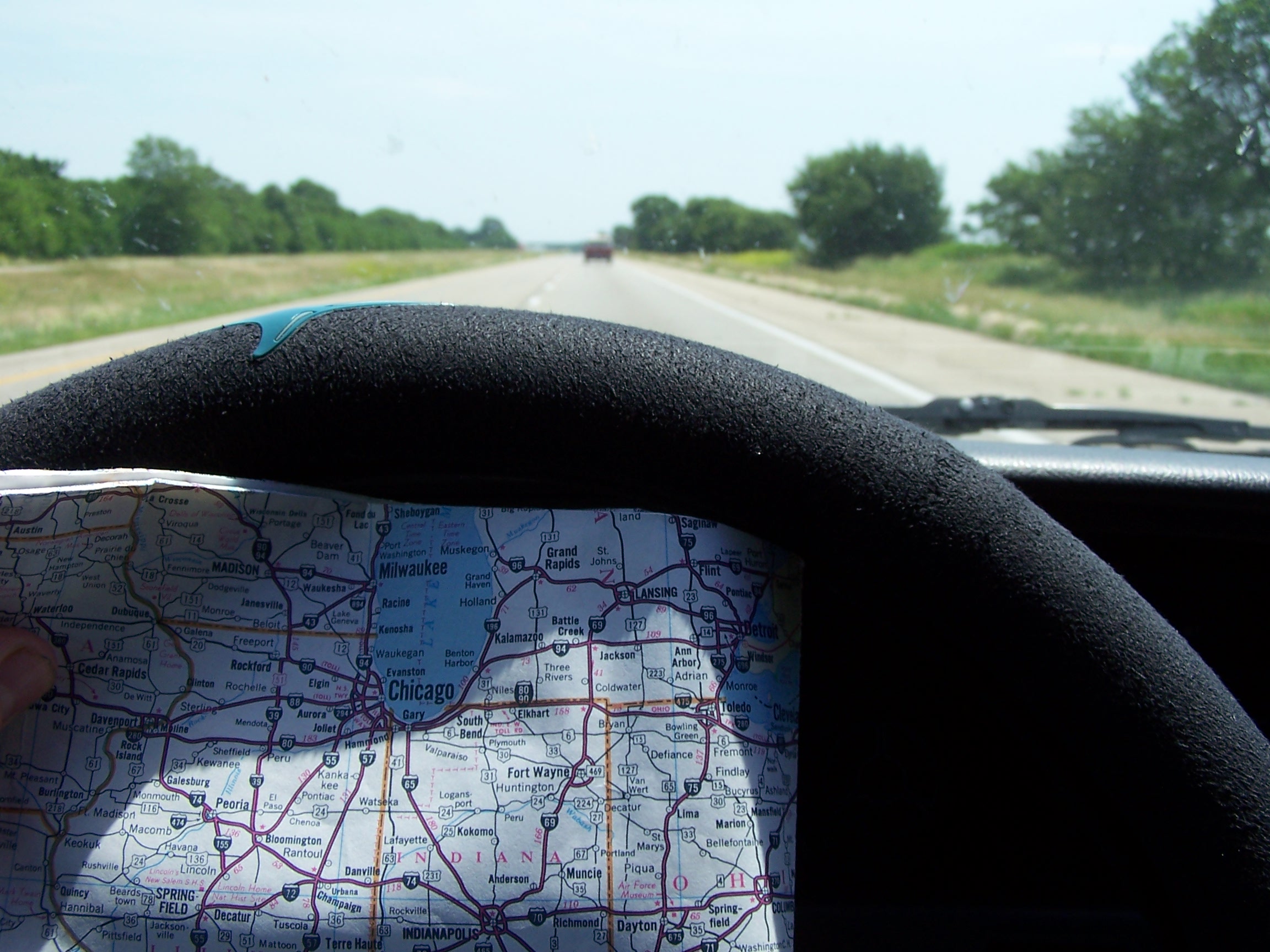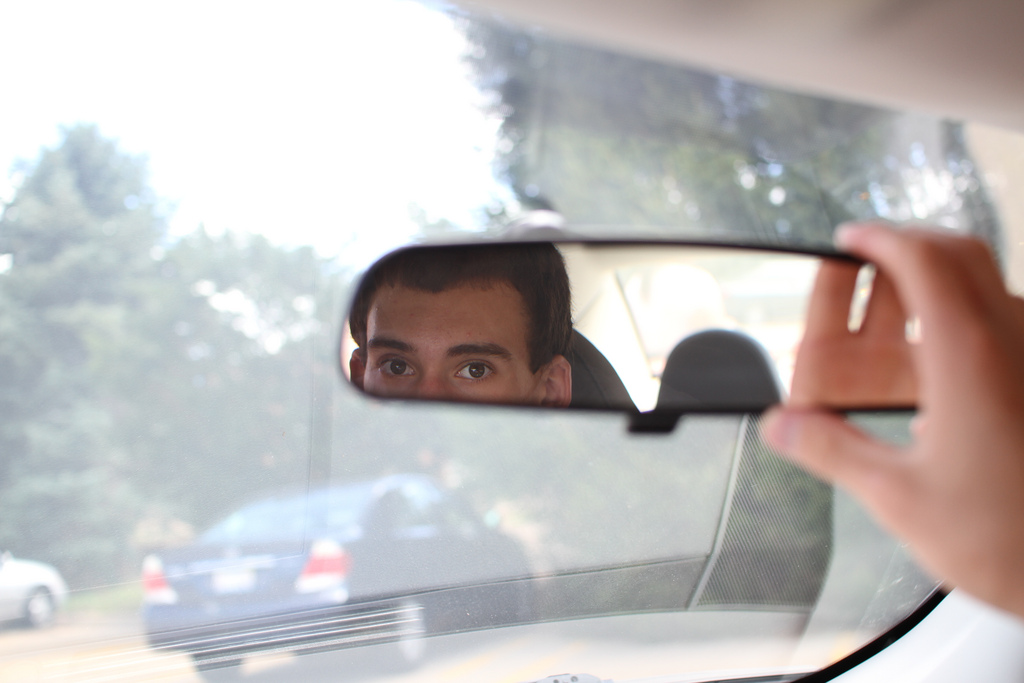From ‘Are We There Yet’ To Taking The Wheel: Teaching Your Teen How To Deal With Disaster On The Road
When we become parents, time takes on a life of its own. We would keep them in the crib forever if we could. But, it’s usually no time until they’re teeengers, making big decisions and setting out on their lives. It can be a heartbreaking time and one that’s confusing for everyone. After all, you’ll want to protect them, but they’ll feel the surging need for their independence. It can be tough getting the balance right during those years.
And, things only get harder the more they break away from you. When they move out of the home, you’ll want to take the reins for them. And, when they first learn to drive, you’ll go out of your mind with worry. Up until this age, the chances are that you’ve managed to protect them from the majority of outside risks. But, when they hit the road, there’s not much you can do to keep them safe.
Try as you might, there’s no chance of them letting you come along for every trip. And, that would hardly be practical anyway. Yet, each time they set out, you’ll worry for their safety.
In some respects, you just need to accept that they’re driving now, and trust them to make sensible decisions. If you take a backseat in this way, you may find that they’re more willing to come to you with any worries. And, that’s got to be a good thing. If they do ask for your advice, of course, it’s essential you’re able to give them an informed answer. To ensure you can do that, we’re going to look at a few of the ways you want to advise your teen to deal with a disaster on the roads.
A breakdown
Any new driver worries about breaking down. Going out solo is nerve-wracking enough as it is, let alone when your car stops working. On top of which, during those early stages, your teen likely has no idea what to do if they do experience a breakdown. As such, it’s likely they will approach you with queries about this at some stage.
When they do, take yourself back to your early days. Consider what you did and didn’t know back then to ensure you can give accurate advice. Teach them about ensuring they stop in a safe place, and moving their car if it’s already stopped altogether. Then, sit down with them and sign them up with a breakdown company. As you do, print off all the details they’re likely to need. Make sure they put the correct phone numbers on their phone. That way, you can be sure they’ll always have a plan of action if the worst happens. And, of course, they always have the option of phoning you if in doubt.
It’s also worth teaching some motoring basics. Then, they can deal with the essentials themselves. This will save a lot of time and stress down the line. Besides which, this is stuff that every motorist should know. To start with, teach them how to change a tire. It’s an essential piece of knowledge that’s sure to come in handy. Teach them, too, about checking engine fluid and such. If they keep on top of issues like these, there’s much less chance that a breakdown will become a reality.
An accident
Another thing which plays heavy on most of our minds in those early days is the possibility of an accident. Driving then is still a learning process, and it isn’t unheard of for new drivers to experience accidents. In fact, teen drivers are nearly three times more likely to crash. Though, you might not want to tell them that. You also want to steer clear of addressing this subject. If they weren’t already worrying, you can guarantee they will be after you mention it. Instead, wait until they come to you with their fears, then do what you can to calm them.
For one, sitting down with them and sorting out their insurance can take a lot of pressure off. Other than that, encourage them to remain calm, and always pay attention to other drivers. If they do experience an accident which isn’t their fault, it could knock their confidence. It’s essential you work with them to overcome that. As well as helping them with insurance, you might want to help them contact a car accident lawyer at the Law Office of Keith L. Magness, LLC, and others like it. By winning a lawsuit against the guilty part, they’ll have proof they weren’t to blame for what happened. With a bit of luck, that’ll leave them more confident to get back on the road.
Getting lost
Few learner drivers consider that they’ll have issues with navigation. But, when you’ve always been a passenger, it’s surprisingly hard to take the lead with directions. All of a sudden, areas they thought they could get to will become distant lands as they attempt to navigate the roads. And, nothing’s worse for panicking a new driver than getting lost.
Of course, sat nav makes it much less likely that this will become a reality for your youngster. Encourage them to enter all their destinations into a sat nav for their first solo journeys. This will help them from feeling panicked, as well as allowing them to memorise their routes.
That said, sat nav systems aren’t without their faults. They don’t always take us on the right routes, and they don’t account for closed roads, either. So, it wouldn’t pay to teach your teen to rely too heavily on this technology. You should also make sure they always have a map in the car with them, and that they’re confident with reading road signs. That way, you can rest assured they’ll fall back on at least one of these methods. It’s also crucial that you stress the importance of not panicking. We’ve all felt the despair of having no idea where we are. The more worked up we get, the less chance we have of finding where we need to be. They need to remain calm and tackle the issue with logical thinking.
It may also be worth advising them to ask for help if all else fails, though you should also stress the need for caution. Urge them not to approach single people, but those in pairs or families. This reduces the risk to their safety in a significant way.

Protecting themselves and their vehicle
No driver or parent likes to think about the possibility of muggings on the road. It’s too terrible to bear, and one of those things which ‘always happens to other people’. And, luckily, incidences of road crime are still fairly low. But, that doesn’t mean they’re non-existent, and it’s essential you teach your teen about road safety. A young driver in a shiny new car is sure to attract attention if they drive in the wrong area. Teach your teen always to remain vigilant when they stop at traffic lights. It’s also worth emphasising the importance of keeping the doors locked while they’re driving in areas known for such crimes. You could also make sure they have a hands free system for their phone. That way, they can call for emergency help if they feel at all at risk.
Helping other drivers
We all like to think that our teens are polite enough to stop and help someone in distress. Yet, it would be naive to believe that parking up and getting out of the car is a good idea. Sadly, criminals use methods like these to encourage victims, and you don’t want that for your teen on the road.
That’s not to say that you should stop them from helping anyone, but that you should urge them to do so with caution. Encourage them to never get out of the car in these instances. Instead, they should wind the window down and speak to those in question from a safe distance. Rather than offering them the use of phones, encourage your teen to ask such people if they can call anyone for them. If not, tell your teen to drive on. There’s a difference between helping and being foolhardy.
In conclusion
There are so many risks on the side of the road that it’s enough to make your head spin. After reading this, you may be thinking that you never want your teen to go solo on the road again. But, remember, that isn’t down to you. All you can do is hand them the right information, and trust that they’ll use it. You’ll soon see that, the more issues they have to deal with on the road, the more you can trust them to cope. They’re grown up now, after all. Once you’ve done the teaching, your job here is done. If you still find yourself stressing, let your teen drive you around for once. Take note of how they handle themselves. The chances are that they’re much better than you’re giving them credit for.



